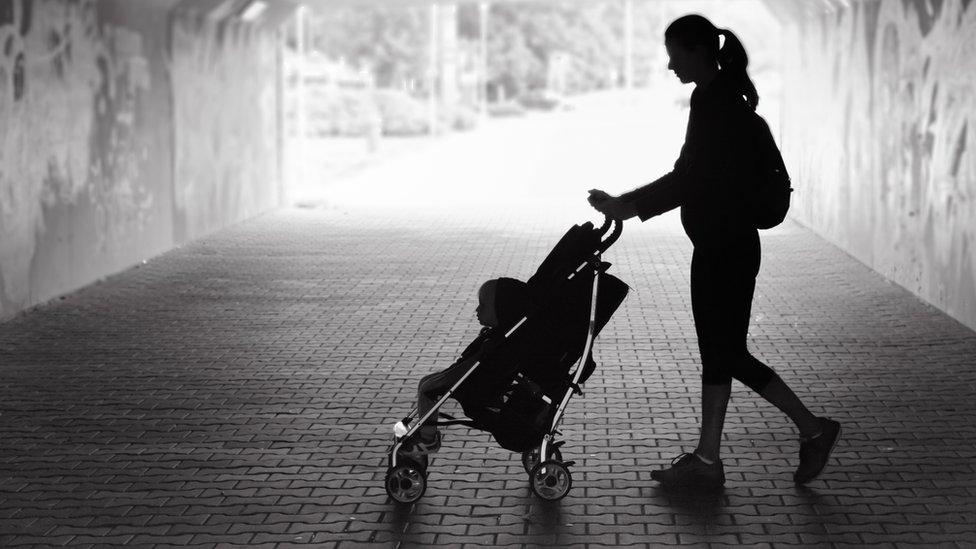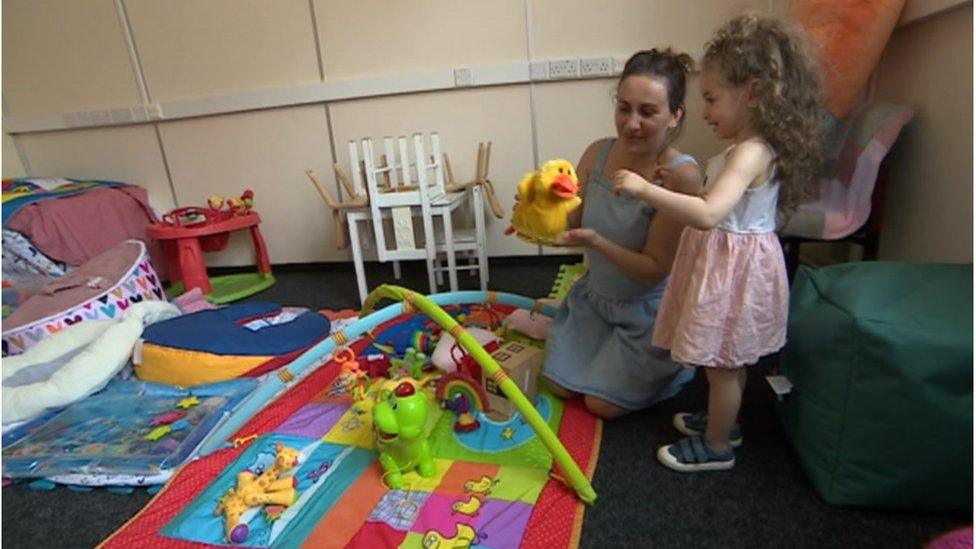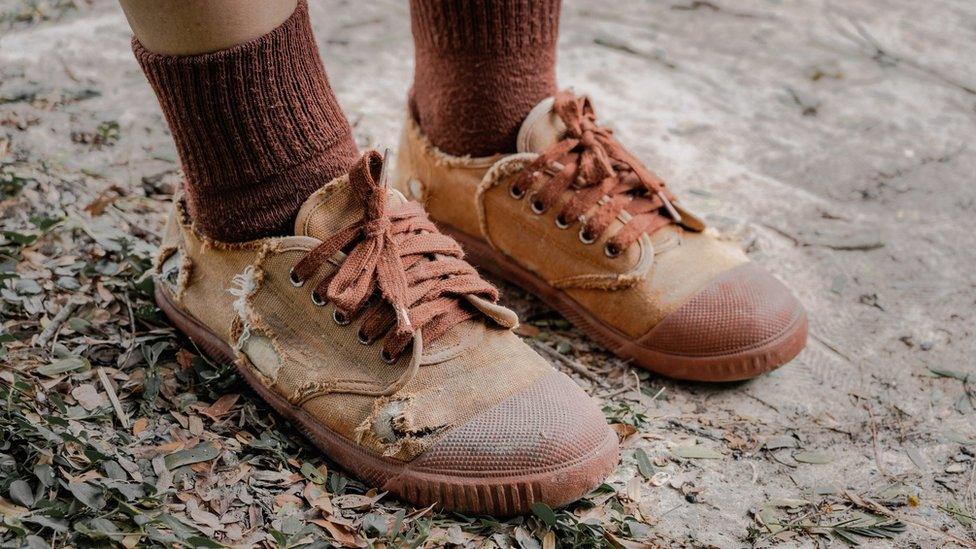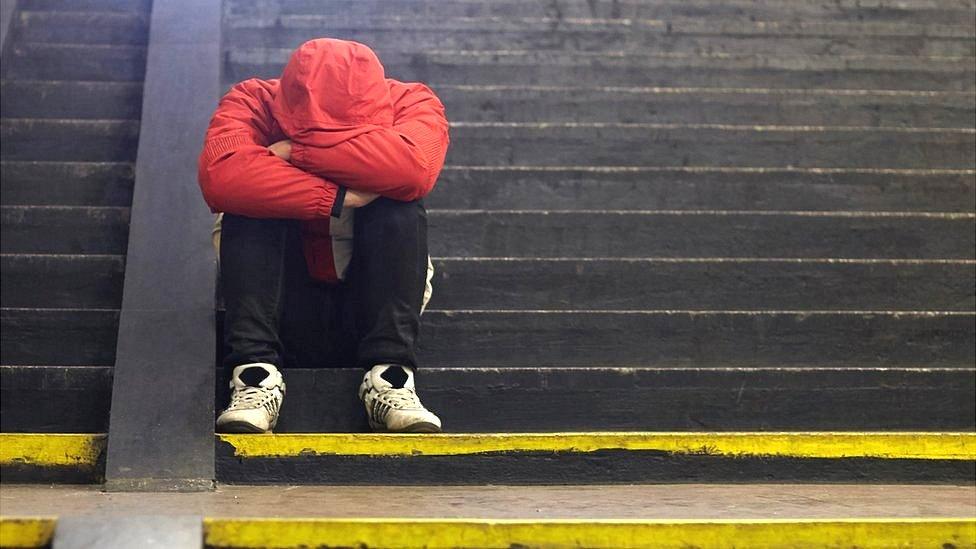Child poverty increases across North East
- Published
- comments

Child poverty rates have remained "alarmingly high", the End Child Poverty Coalition said
Child poverty rose across the north-east of England in the first year of the pandemic, despite it falling in many other areas, figures have shown.
Research carried out for the End Child Poverty Coalition by Loughborough University found that around the UK it was at the lowest level in seven years.
However, across the North East it went up by 12 percentage points to 38%.
It also rose by six percentage points in Yorkshire and the Humber, and by five in Wales.
Researchers analysed official figures from the Department for Work and Pensions showing the percentage of children living in households with less than 60% of the median income in local areas.
They found it fell from 31% to 27% between 2019-20 and 2020-21.
'Precipice edge'
The End Child Poverty Coalition, which represents more than 70 organisations, said this was likely to be due to government measures during the pandemic, such as temporarily increasing Universal Credit by £20 a week.
But it said over the past decade rates had remained "alarmingly high", especially in major cities and London boroughs.
More than half of children growing up in Tower Hamlets were living in poverty in 2020-21, and more than 40% of children in five more London boroughs, and Luton, Newcastle, Birmingham, Middlesbrough and Sunderland.


Sara Bouchada has been using the Baby Bank in Hartlepool to help with essentials for her family
A Baby Bank was set up in Hartlepool three years ago to help families in need with clothes, nappies and essentials.
In 2018 it was working with six families a week but that figure has increased to 120 families a week.
One of them is Sara Bouchada. She said: "I will be honest, before using Baby Bank sometimes we didn't have food for two to three days because I had to buy nappies or I needed to buy clothes for my children, and all the time I was stressed as I needed to count my money, the money is not enough for nappies and clothes, just for food."

End Child Poverty Coalition chairman Joseph Howes said: "There will always be conflicting government priorities, but surely the wellbeing of the most vulnerable children in our society should be front and centre, particularly as we go through the most severe period of price rises for 40 years?
"It remains incredibly worrying that at a moment like this there is nothing in the government's Levelling Up strategy on this issue.
"It still feels like we are on the edge of a precipice.
"There is significant concern that the numbers of children in poverty will now rise again sharply with families facing huge cost increases in the coming months."

Campaigners have called for more government assistance for families
Dan Paskins, director of UK impact at Save the Children, said: "There must now be an immediate focus on the Universal Credit system as a means of helping families on the lowest incomes weather the cost-of-living crisis."
A government spokesman said the eight million most vulnerable families will be protected with at least £1,200 in direct payments from this week.
He said: "Through our £37bn support package we are saving the typical employee over £330 a year through a tax cut this month, allowing people on Universal Credit to keep £1,000 more of what they earn and in April we significantly increased the National Living Wage to £9.50, the largest ever rise.
"In addition, we have expanded access to free school meals more than any other government in recent decades, while vulnerable families in England are being supported by the government's Household Support Fund - which was recently boosted by another £500m."

Follow BBC North East & Cumbria on Twitter, external, Facebook, external and Instagram, external. Send your story ideas to northeastandcumbria@bbc.co.uk, external.
- Published14 October 2020
